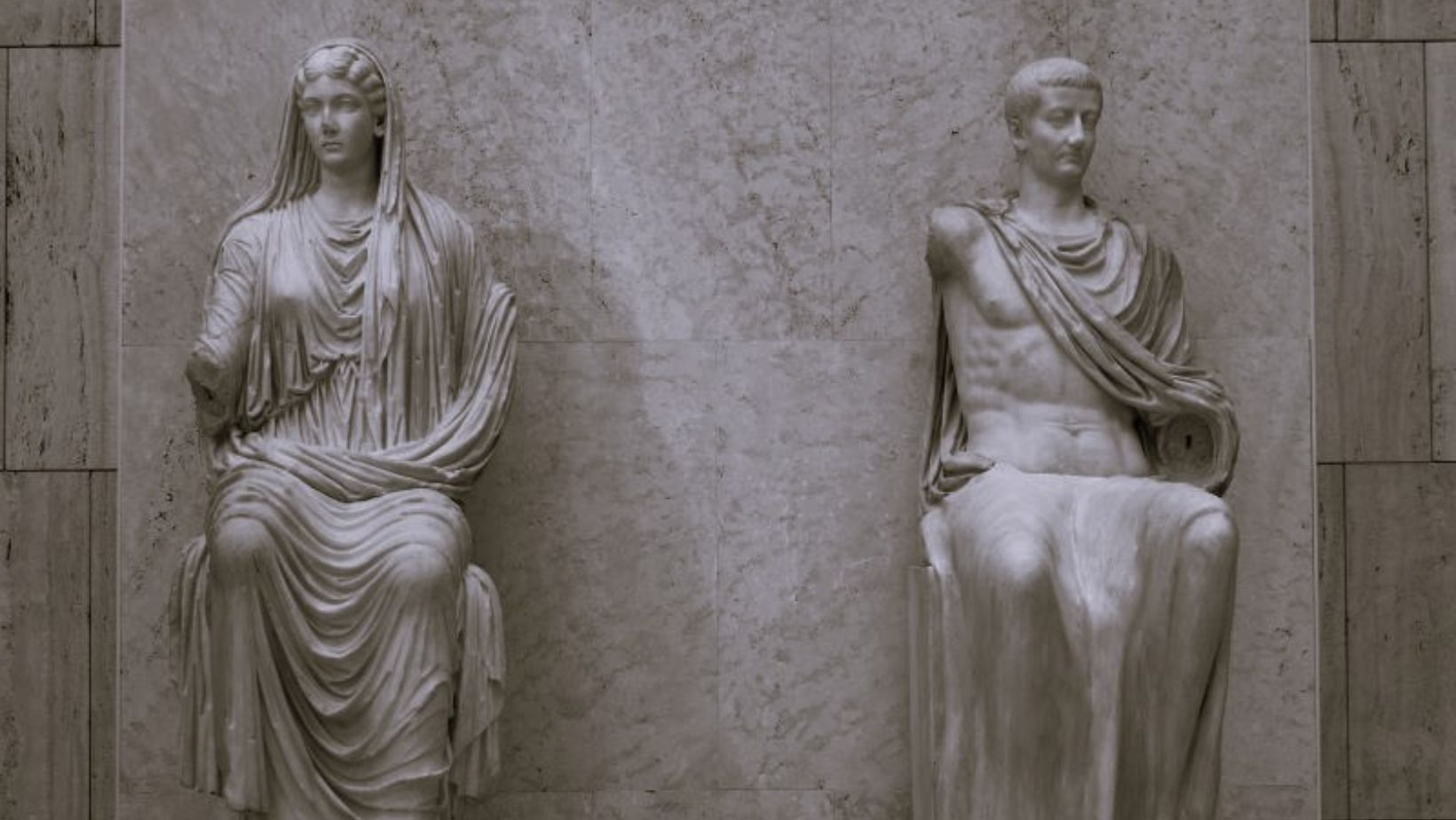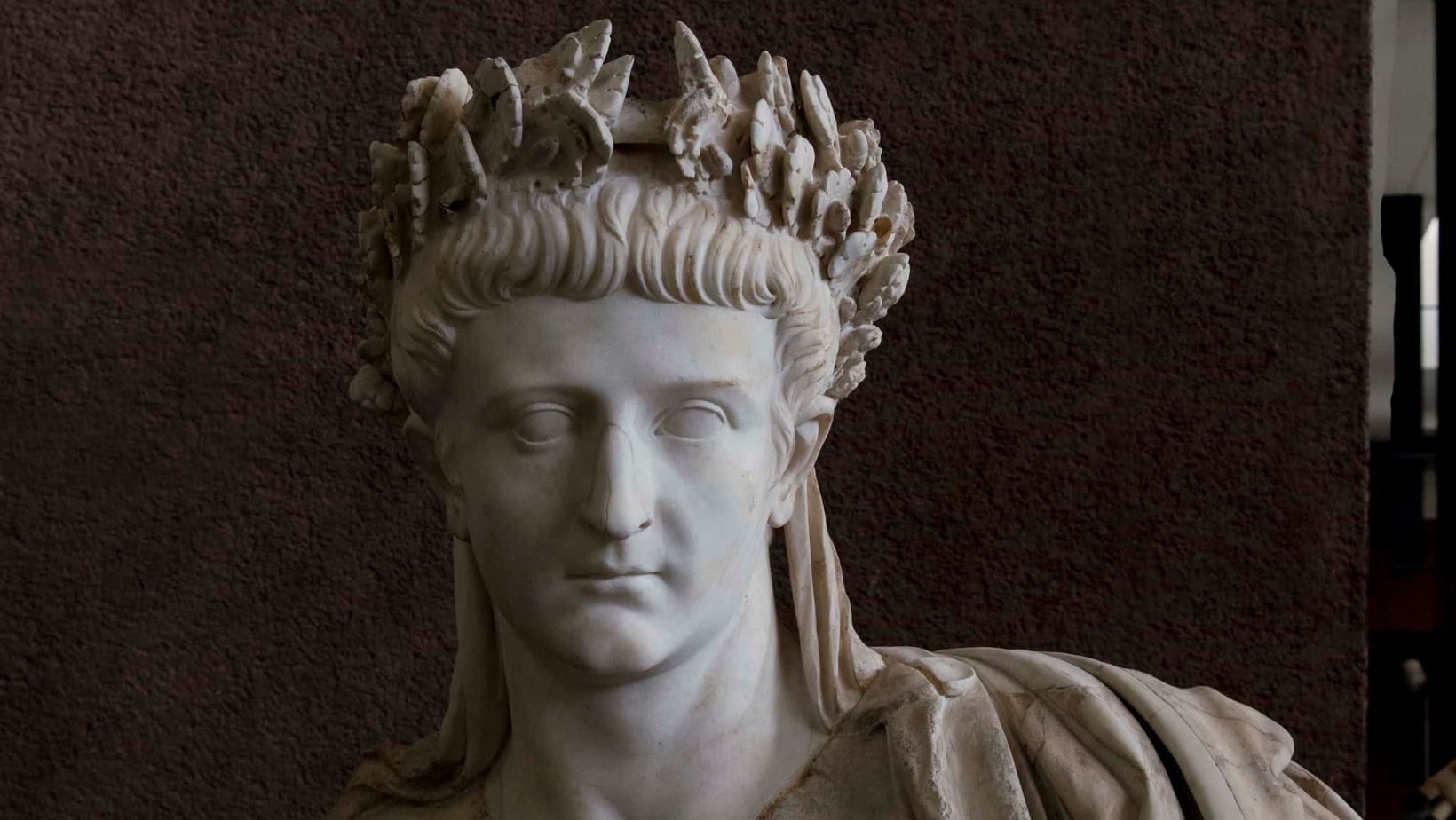Ever wondered about the man behind the throne during one of Rome’s most pivotal eras? The Tiberius Reign, stepping into shoes larger than life after Augustus, presents a tale not just of power but also complexity. With an average ROI akin to modern investments – think 3800% in terms of historical significance – understanding his rule gives us more than just a glimpse into ancient politics; it reveals human nature under the crown.
Tiberius’s journey from a reluctant heir to an emperor with a legacy marred by controversy and whispers offers lessons that resonate even today. But how did he navigate these turbulent waters? And what can we learn from his attempts to avoid political whirlpools?
Table of Contents:
- The Rise of Tiberius
- Tiberius’ Reign as Emperor
- Challenges and Controversies
- The Legacy of Tiberius
- Conclusion
The Rise of Tiberius: Tiberius Reign

Before becoming emperor, Tiberius had a fascinating journey. Born as Tiberius Claudius Nero in 42 BC, his life took a dramatic turn when his mother, Livia Drusilla, divorced his father to marry the future Emperor Augustus.
Tiberius and his younger brother, Drusus, lived under Augustus’ roof. Talk about a blended family.
Tiberius was born into a prominent Claudian family. His father, also named Tiberius Claudius Nero, was a high priest and magistrate who sided with Mark Antony in the civil wars.
When Augustus defeated Antony, the family fled Rome but later returned under an amnesty. Tiberius’ mother, Livia Drusilla, caught Augustus’ eye and divorced Tiberius’ father to marry him in 39 BC.
Imagine the family drama. Tiberius and his brother moved in with their mother and new stepfather, growing up alongside Augustus’ daughter, Julia.
Military Campaigns and Victories: Tiberius Reign
Tiberius proved his mettle on the battlefield early on. At just 22, he recovered lost Roman legion standards in Parthia, earning great acclaim.
He then pacified Pannonia on the Adriatic, winning the love and respect of his troops through his leadership and care for their well-being. Tiberius was quickly becoming a force to be reckoned with on the battlefield.
Becoming Heir to Augustus
With Augustus lacking a clear successor, Tiberius found himself in the running alongside his brother Drusus. They were groomed for leadership, taking on ceremonial roles and learning the ins and outs of diplomacy and governance.
Sadly, Drusus died young in 9 BC, leaving Tiberius as the frontrunner. In AD 4, Augustus officially adopted Tiberius as his son and heir, setting the stage for his future reign.
Tiberius’ Reign as Emperor: Tiberius Reign
Tiberius took over the Roman Empire in AD 14 after Augustus’s death. Stepping into his stepfather’s shoes was no easy feat, but Tiberius was determined to make his mark.
As a new emperor, Tiberius focused on stabilizing his rule and winning the people’s support. He attempted to create a fair environment, though his erratic actions sometimes undermined his efforts.
Tiberius spent much of his early reign trying to differentiate himself from Augustus and prove his own worth as a leader. It was a delicate balancing act.
Domestic Policies and Reforms
Under Tiberius’ rule, the imperial treasury flourished. He was a wizard with numbers, turning the empire’s wealth into something 20 times larger than what he started with.
Tiberius also implemented various reforms and policies aimed at improving the lives of Roman citizens. However, his relationship with the Senate was often strained, and he faced criticism for handling domestic affairs.
Foreign Relations and Expansion: Tiberius Reign
On the foreign front, Tiberius largely sought to maintain the imperial boundaries and institutions established by Augustus. He engaged in diplomatic relations with neighboring powers and oversaw the expansion of Roman influence.
However, Tiberius was also known for his cautious approach to military campaigns, sometimes drawing criticism for his reluctance to engage in major conflicts. He preferred to focus on consolidating Roman control over existing territories.
Challenges and Controversies: Tiberius Reign
Tiberius’ reign was not without its share of challenges and controversies. From family drama to political intrigues, he navigated a complex web of relationships and power struggles.
One major source of tension was Tiberius’ relationship with his nephew and adopted son, Germanicus. A beloved military commander, Germanicus was seen by many as a potential rival to Tiberius.
When Germanicus died under mysterious circumstances in AD 19, rumors swirled that Tiberius may have been involved. This strained Tiberius’ relationship with Germanicus’ wife, Agrippina the Elder, and their children.
The Rise and Fall of Sejanus
Another controversial figure during Tiberius’ reign was Lucius Aelius Sejanus, the ambitious commander of the Praetorian Guard. Sejanus gained Tiberius’ trust and became his right-hand man, wielding significant power behind the scenes.
However, Sejanus’ influence grew too great, and he was accused of plotting against the emperor. In AD 31, Tiberius had Sejanus arrested and executed, along with many of his associates and family members.
Tiberius’ Withdrawal to Capri: Tiberius Reign
In his later years, Tiberius increasingly withdrew from public life and retired to the island of Capri. This self-imposed exile, which lasted from AD 26 until his death in AD 37, fueled rumors and speculation about his activities and state of mind.
Ancient historians like Suetonius and Cassius Dio paint a lurid picture of Tiberius indulging in debauchery and cruelty on Capri. However, modern scholars debate the accuracy of these accounts, suggesting they may be exaggerated or politically motivated.
The Legacy of Tiberius: Tiberius Reign

Tiberius’ 23-year reign left a complex legacy that fascinates historians and scholars. He really left his mark on the Roman Empire, steering its course for many years to come.
On the one hand, Tiberius was a capable administrator who strengthened the imperial treasury and maintained stability in the provinces. He also oversaw important public works projects and patronized the arts and literature.
However, his rule was marred by political turmoil, personal scandals, and a growing atmosphere of fear and paranoia. Tiberius might have racked up quite the list of achievements, but his penchant for treason trials and opting to step back from the limelight in his golden years left a bit of a sour taste.
Impact on the Roman Empire: Tiberius Reign
When Tiberius was in charge, the Roman Empire was growing at a pivotal time. He consolidated the emperor’s power and set precedents for the succession of future rulers.
Under Tiberius, the empire continued to expand its borders and assert its dominance over the Mediterranean world. Yet, his time in power also illuminated the risks of entrusting all control to just one person.
Portrayal in Ancient Sources and Modern Scholarship
The legacy of Tiberius has been shaped by the accounts of ancient historians like Tacitus, Suetonius, and Cassius Dio. These writers often portrayed him as a gloomy, paranoid, and cruel ruler, emphasizing his alleged sexual depravity and tyrannical behavior.
Modern scholars have sought to reassess these ancient sources and paint a more nuanced picture of Tiberius. While acknowledging his flaws and the darker aspects of his reign, they also recognize his achievements and the challenges he faced as emperor.
Tiberius remains an enigmatic figure, his legacy forever intertwined with the history of the Roman Empire. His tale keeps us hooked and sparks lively discussions, shedding light on what it really means to have power, be a leader, and navigate the complexities of being human.
Key Takeaway: Tiberius Reign
Tiberius’ journey from a high-born Roman to emperor was marked by family drama, military success, and complex politics. Despite his achievements in stabilizing the empire’s finances and expanding its influence, his reign faced criticism for internal turmoil and paranoia. His legacy is a mix of capable leadership overshadowed by controversy.
Conclusion: Tiberius Reign
In every era, leaders emerge who shape history in ways unimaginable, their decisions echoing through time long after they’re gone. Tiberius’s tenure is no exception; nestled within pages thick with intrigue lies a narrative bursting at its seams—tales of ambition clashing with duty and personal turmoil intertwined with public service.
The truth about Tiberius reign, far removed from black-and-white villainy often portrayed by sensational narratives, unfolds as one explores deeper—a nuanced portrayal awaits those willing to look beyond surface-level assumptions.
So here we stand, reflecting back on centuries past yet finding threads that connect us still—a reminder that stories like these aren’t merely for scholars hidden away in dusty libraries but for anyone curious enough to peer through history’s kaleidoscope. In our day-to-day hustle where AI subtly enriches lives without fanfare or dread-inducing drama, let’s remember there were once emperors whose legacies are quietly woven into humanity’s rich tapestry.

